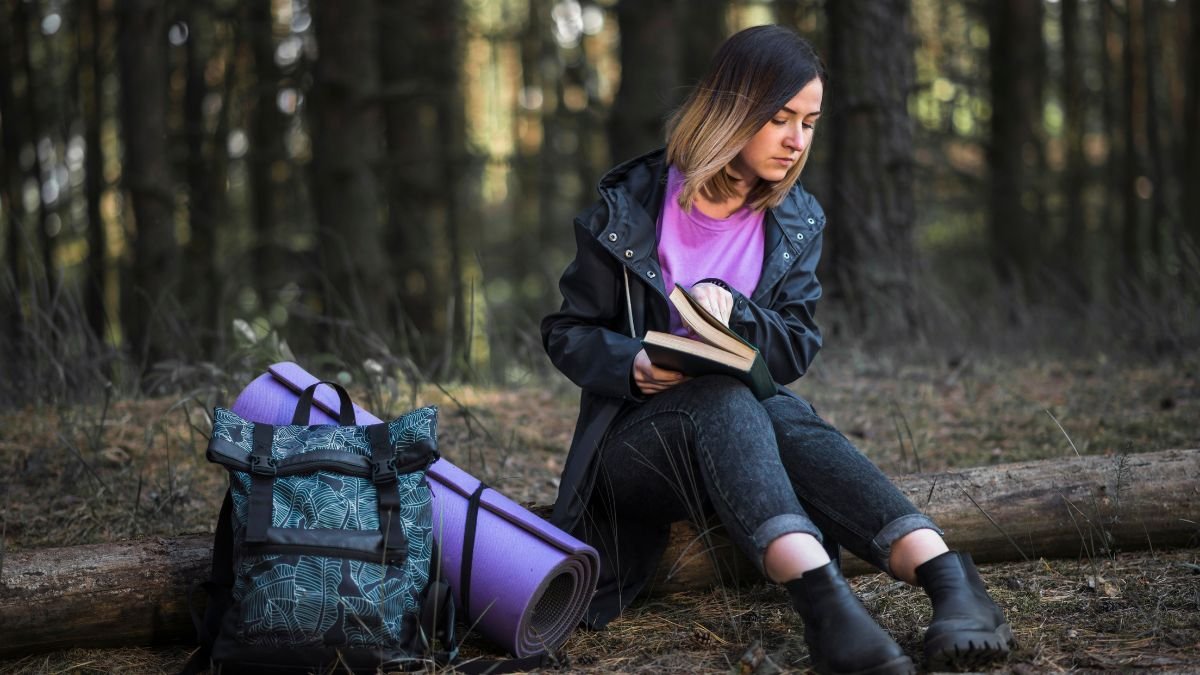Most first-time backpacking mistakes happen before you even hit the trail. New backpackers unknowingly make expensive gear choices and packing decisions that lead to carrying 40-50+ pounds. This crushing weight causes trip failure, injury, and discouragement from the sport entirely.
The problem isn’t lack of preparation. It’s the wrong preparation. Beginner hikers spend hundreds of dollars on heavy gear because they don’t know pack weight matters more than having every possible item.
75-80% of first-time backpackers quit early or fail to complete their planned trips. The biggest reason isn’t weather, wildlife, or getting lost. It’s carrying too much weight.
Your first backpacking trip should create a lifelong love of the outdoors. The $500 mistake kills that dream before it starts. But once you know what to avoid, backpacking becomes the amazing adventure you imagined.
The $500 Hiking Mistake That Ruins 80% of First-Time Backpackers’ Trips
The $500 Mistake That’s Crushing New Backpackers
The mistake that ruins 80% of first backpacking trips isn’t what you think. It’s not getting lost or forgetting your sleeping bag. It’s the $500 you spent on the wrong gear before you even hit the trail.
You walk into a sporting goods store or browse online. The salesperson shows you a “complete backpacking setup.” Heavy 65-liter pack for $200. Bulky 4-pound tent for $150. Thick sleeping bag rated to -20°F for $100. Plus camp chairs, lanterns, and “essential” extras for another $50.
i. Total Damage: $500 Total Weight 40-50 Pounds
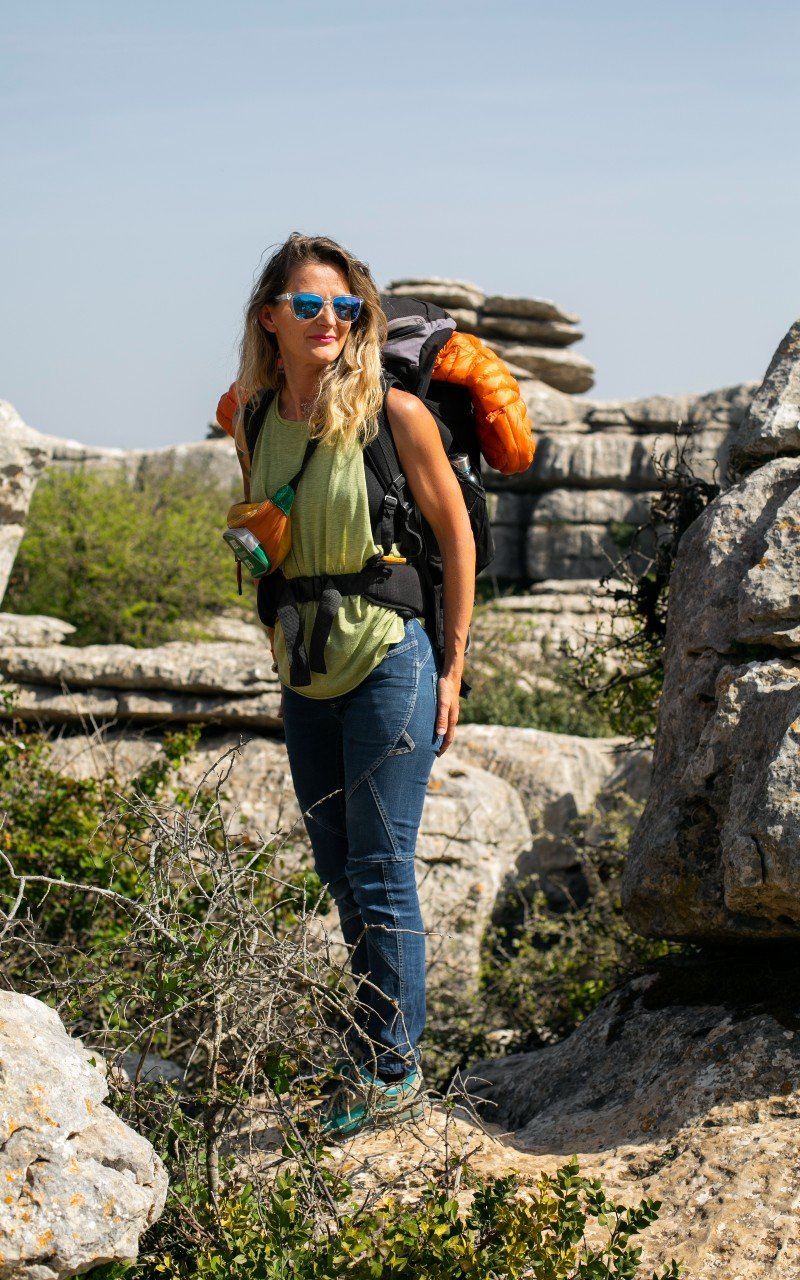
Beginners should carry 20-30 pounds max. REI experts say your pack should weigh no more than 20% of your body weight. For a 150-pound person, that’s 30 pounds total.
The numbers don’t lie. Studies show that 75-80% of Appalachian Trail hikers never finish their planned hikes. The biggest reason? They quit because carrying heavy packs makes hiking miserable.
ii. Why Does This Keep Happening
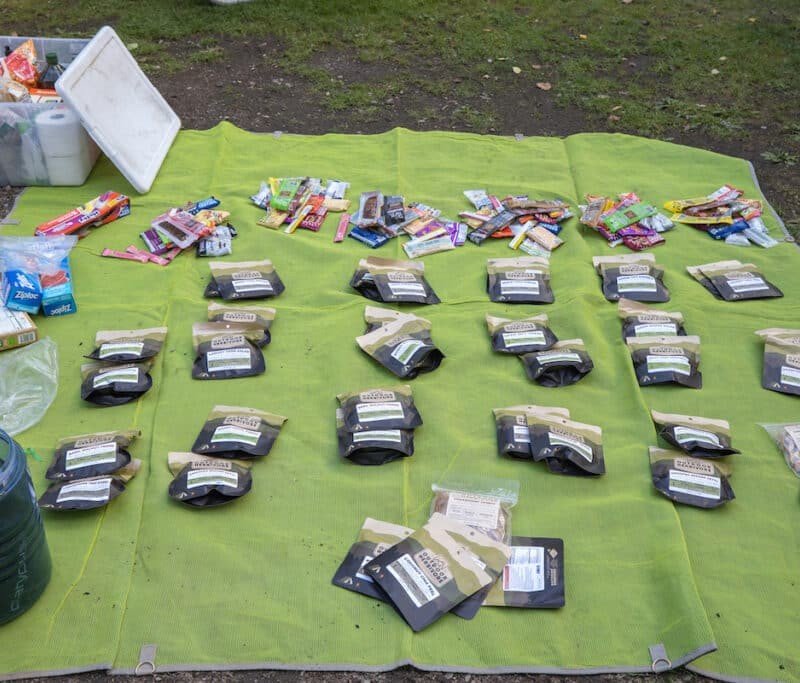
Fear drives bad buying decisions. New backpackers worry about everything that could go wrong. Cold night? Buy the warmest sleeping bag. Rainstorm? Get the biggest tent. Long trip? Pack extra everything.
Gear companies know this. They market “complete kits” and “everything you need” packages. These kits focus on having every item, not having the right weight.
Most beginners don’t even know pack weight matters. They think hiking with 45 pounds is normal. It’s not.
iii. The Real Cost Goes Beyond Money
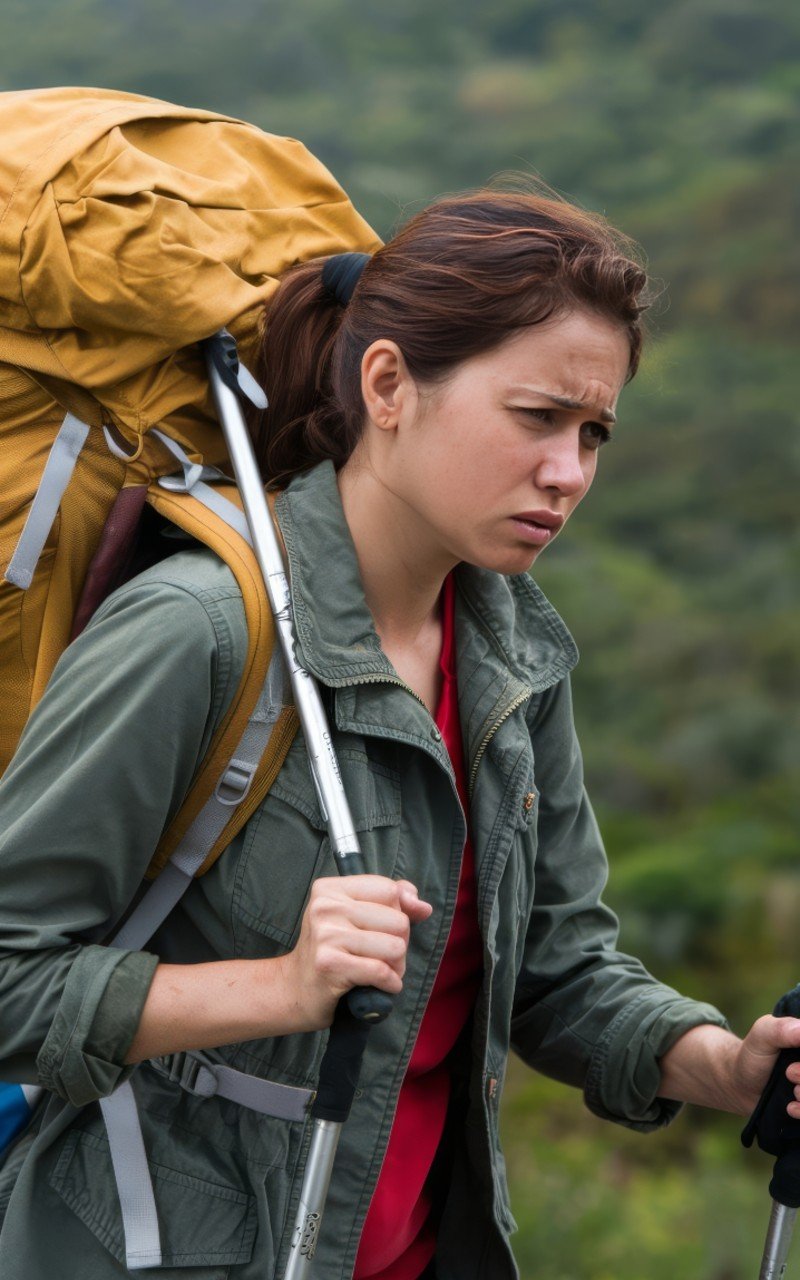
Rosey spent $500 on her first backpacking setup. Her loaded pack weighed 47 pounds. She made it three miles before her knees started screaming. She spent her “wilderness weekend” in a motel, discouraged and convinced backpacking wasn’t for her.
Mike bought similar gear. His 52-pound pack nearly caused a fall on his first trail. He developed knee pain that lasted weeks. Compare this to smart gear choices:
i. Lightweight 40-liter pack: $150 (saves $50, weighs 2 pounds less)
ii. Ultralight 2-person tent: $200 (costs more upfront, weighs 2 pounds less)
iii. Down sleeping bag: $150 (same price, weighs 1 pound less)
iv. Skip the extras: $0 (saves $50, saves 2 pounds)
Smart total: $500. Smart weight: 25-30 pounds.
iv. Heavy Packs Don’t Just Hurt Your Body
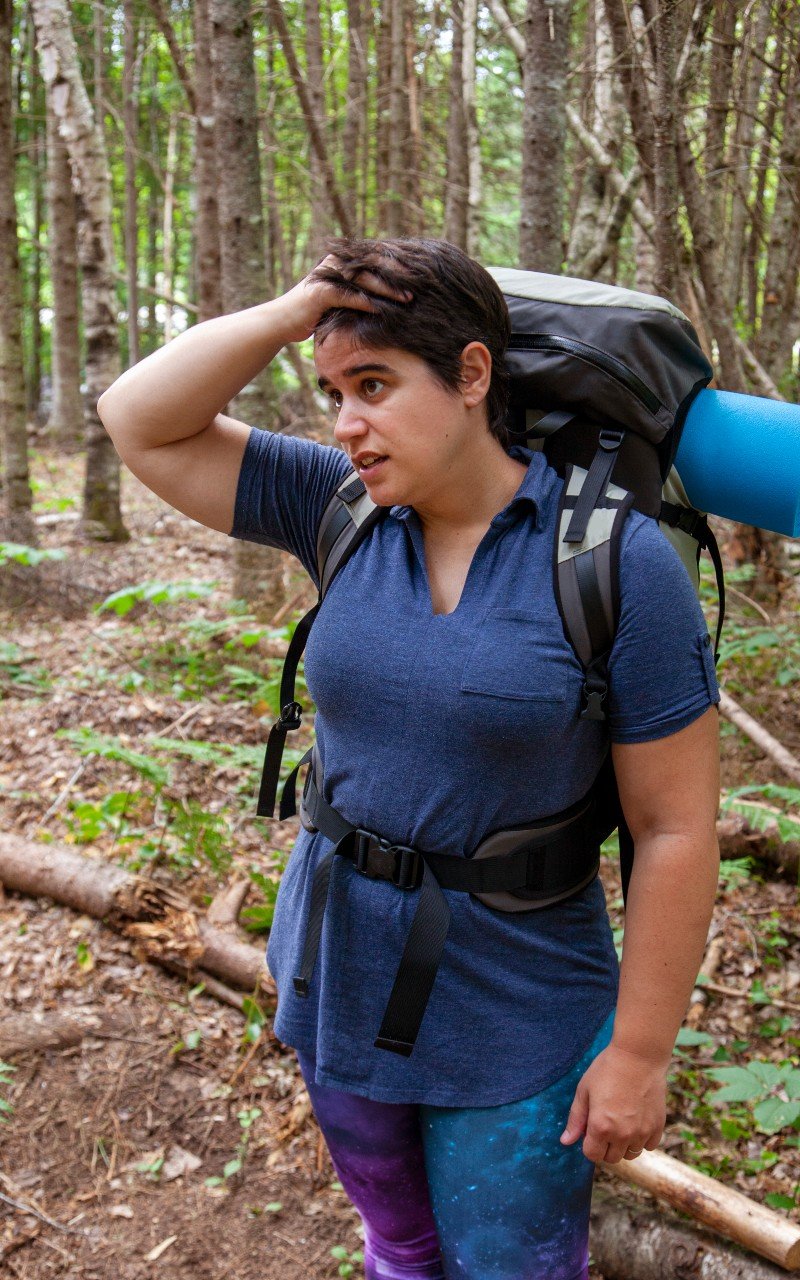
They slow you down, tire you out faster, and make every mile feel like five. They turn what should be fun into punishment.
Your first backpacking trip should create a lifelong love of the outdoors. The $500 mistake kills that dream before it starts.
The good news? This mistake is completely preventable once you know what to look for.
Why Heavy Packs Destroy First Backpacking Trips
Your body wasn’t built to carry 45 pounds up a mountain. When you strap on an overloaded pack, your hiking trip becomes a slow-motion disaster.
i. The Physical Damage Starts Immediately
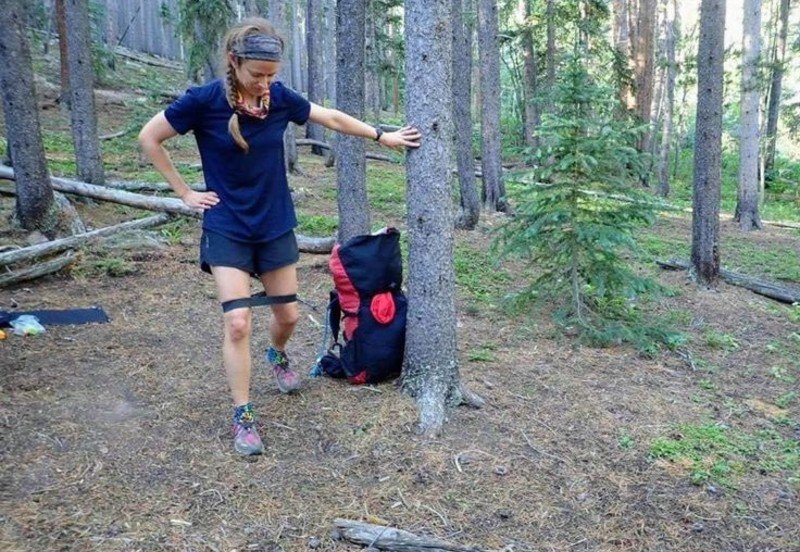
Heavy packs crush your shoulders and strain your back muscles. Your knees absorb extra punishment with every downhill step. What should feel like a pleasant walk becomes a painful slog, happens to your body:
i. Shoulders go numb after the first mile
ii. Lower back starts aching by mile two
iii. Knees feel wobbly on descents
iv. You’re exhausted after half the distance you planned
ii. The Mental Damage Is Worse
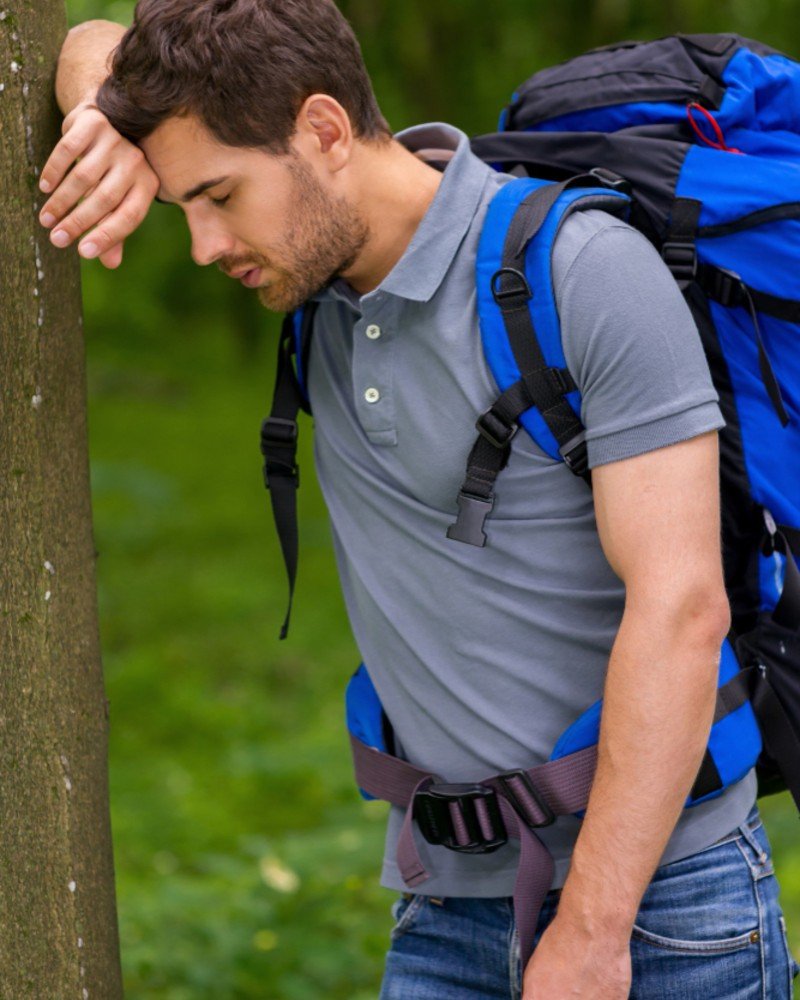
When every step hurts, you stop noticing beautiful views. You stop enjoying conversations with hiking partners. All you think about is when this torture will end.
Research shows that 2,000 to 5,000 hikers go missing on trails every year. Many get lost because they’re too tired to think clearly or make good decisions. Heavy packs don’t just hurt your body – they cloud your judgment. Compare these pack weights:
i. Ultralight hikers: 15-20 pounds
ii. Experienced backpackers: 25-30 pounds
iii. Beginners with heavy gear: 40-55 pounds
That extra 20-25 pounds makes hiking feel impossible instead of enjoyable.
iii. Heavy Packs Create A Death Spiral
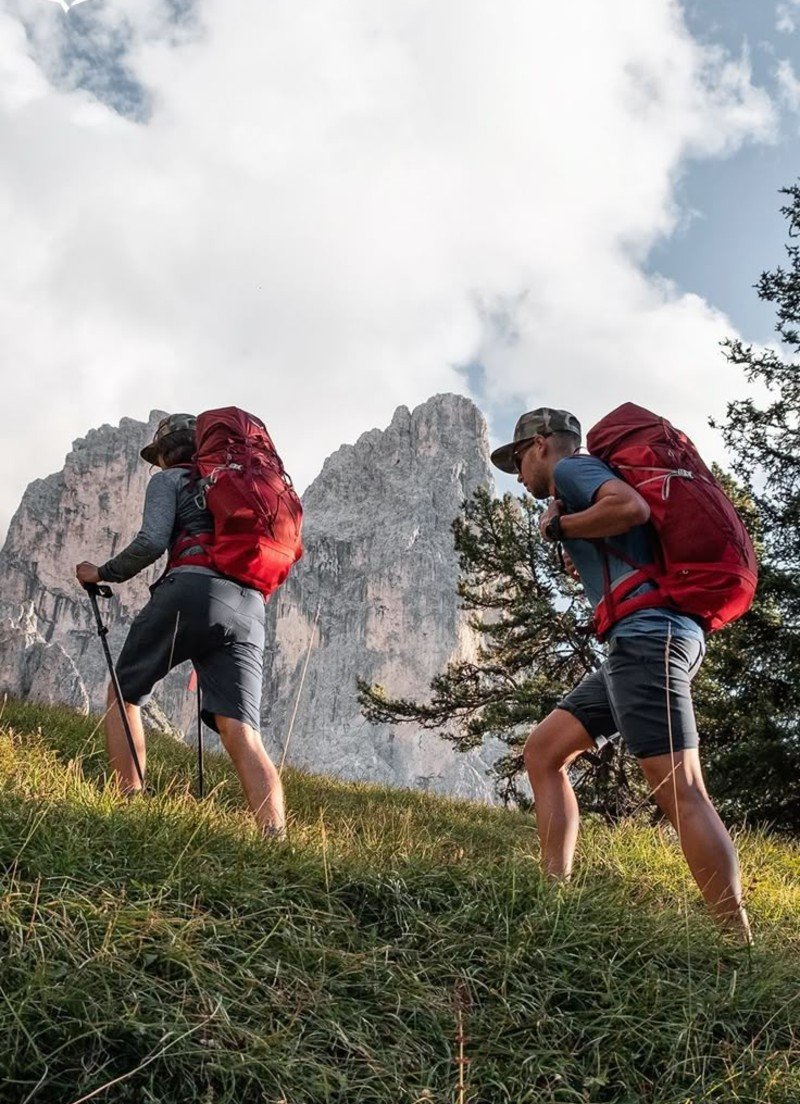
You move slower because of the weight. Slower hiking means you need more daylight hours. More hours means more food and water. More supplies means an even heavier pack.
Jake learned this the hard way. His 48-pound pack slowed him down so much that a planned 8-mile day turned into 12 hours of hiking. He ran out of water and had to cut his weekend trip short after one night.
iv. The Injury Risk Is Real
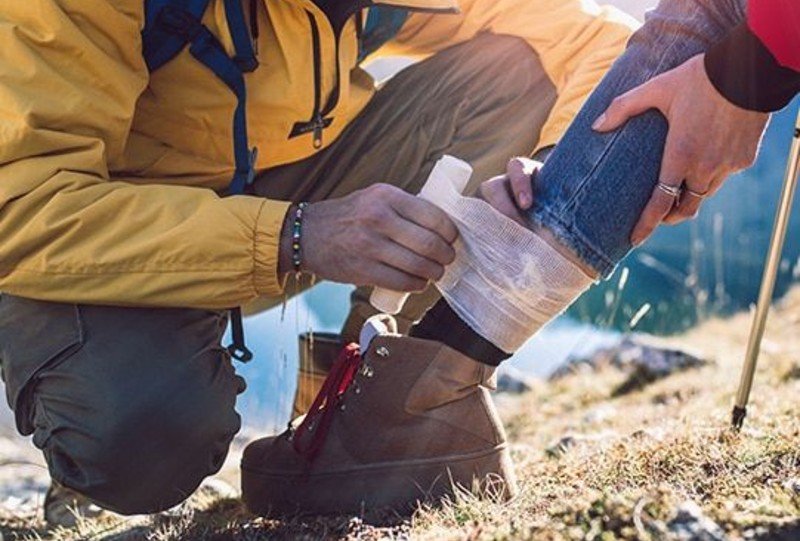
The American Hiking Society reports that overuse injuries are the leading cause of hiking accidents. Knee strain, back injuries, and ankle problems all increase when you carry too much weight.
Heavy packs steal the joy from hiking. You spend months planning your trip, take time off work, drive hours to a trailhead, and then suffer through an experience that should be amazing.
Many people quit backpacking forever after one terrible heavy-pack experience. They think hiking isn’t for them. The truth is, hiking with the right gear weight is completely different.
The Real Cost of Getting It Wrong
The $500 mistake costs way more than $500. When you buy the wrong gear, you don’t just lose money – you lose experiences, time, and confidence.
i. Start With The Financial Hit
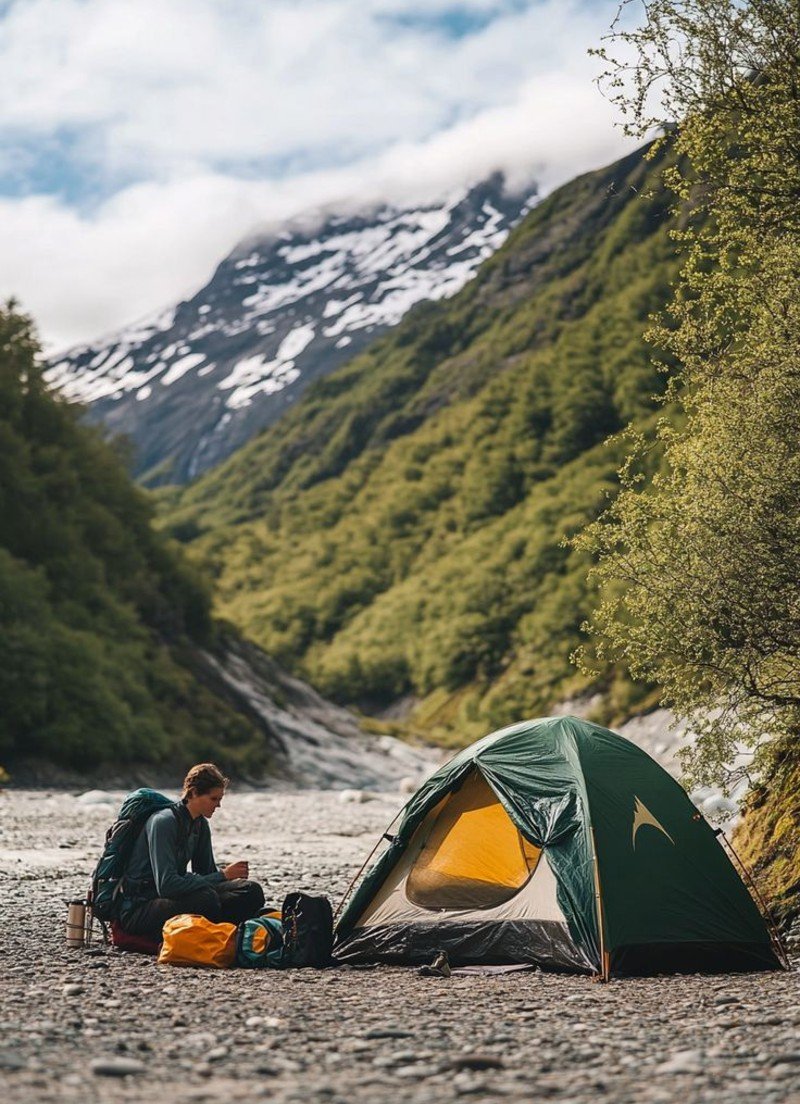
You spend $500 on heavy gear that makes hiking miserable. Then you realize you need to replace most of it with lighter options. That lightweight tent costs $200. The ultralight sleeping bag is $180. The proper pack runs $150.
You’re now $1,030 into gear for one hobby. The Appalachian Trail Conservancy says most people spend $1,200 to $2,000 on their complete setup anyway, but smart shoppers get it right the first time.
ii. Your Vacation Time Is Gone Forever
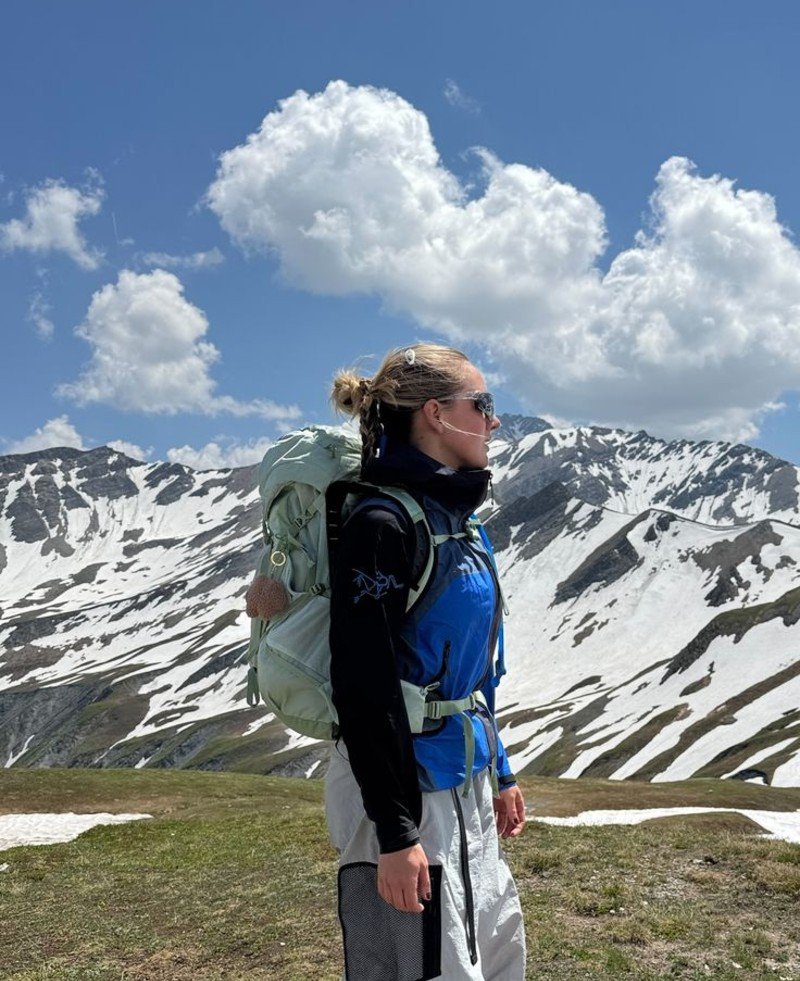
You planned a perfect weekend in the mountains. Instead, you spent it limping back to your car with a sore back and bruised ego. Those vacation days don’t come back. The perfect weather window you waited months for is over.
iii. Physical Costs Add Up Fast
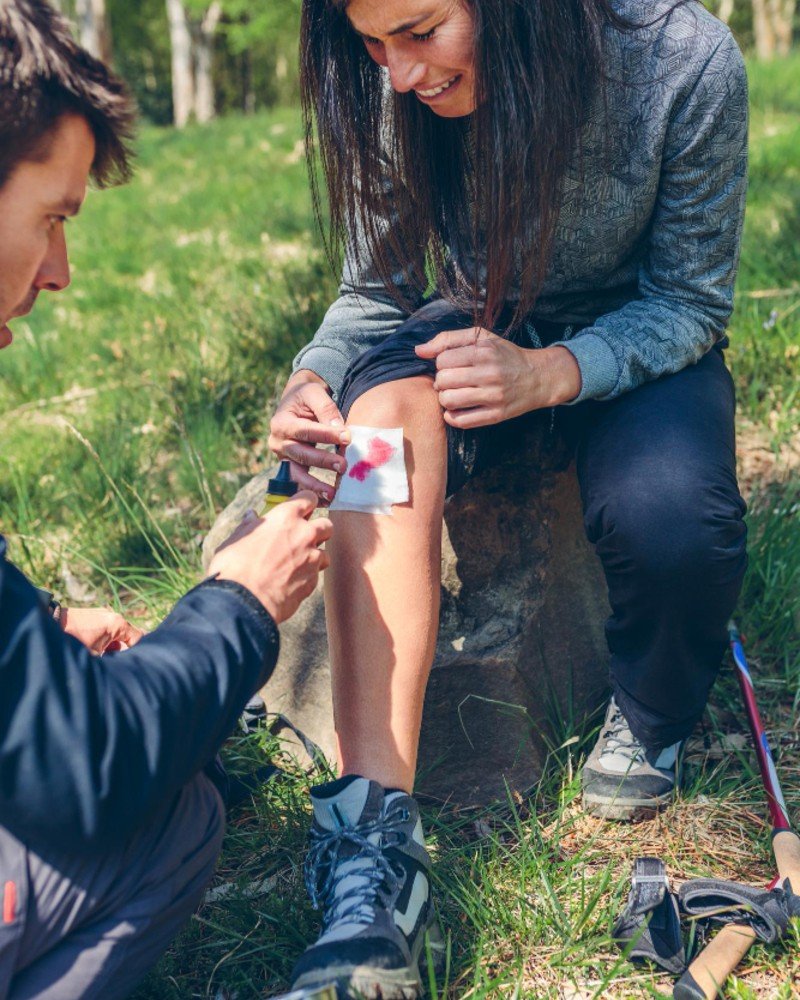
Heavy pack injuries take weeks to heal. Back strain keeps you out of the gym. Knee pain makes you skip your regular walks. Some people need physical therapy or doctor visits.
iv. The Emotional Damage Lasts Longest
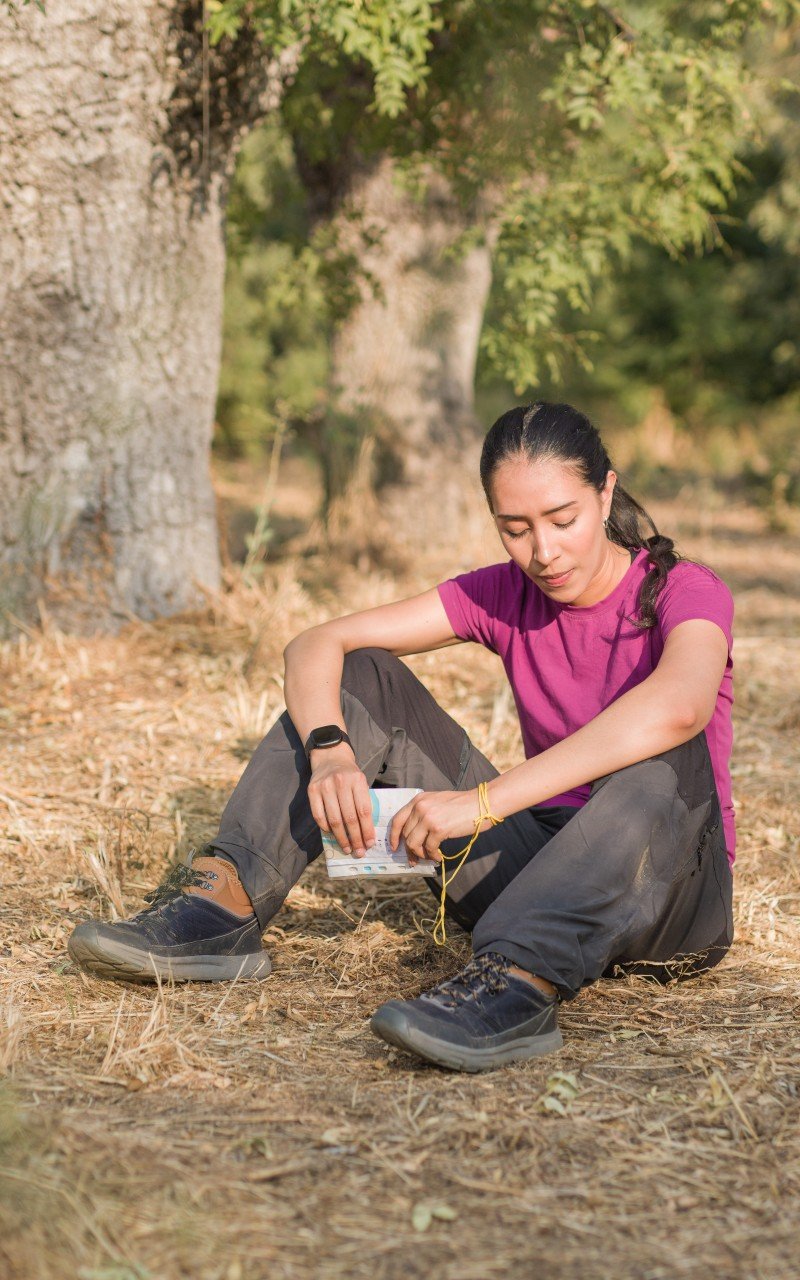
Rosey saved for six months to buy her first backpacking setup. Her heavy pack turned her dream hiking trip into a nightmare. She told friends “backpacking isn’t for me” and never tried again. She missed years of potential outdoor adventures because of one bad experience.
v. Your Hiking Partners Suffer Too
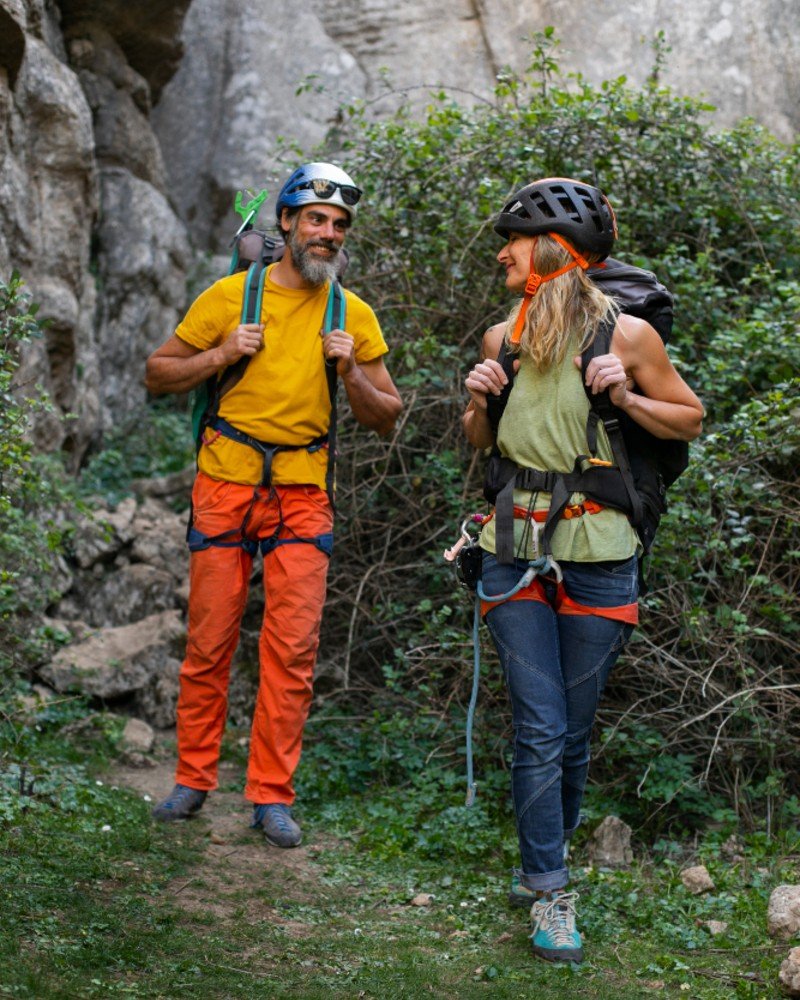
When you struggle with a heavy pack, you slow down the whole group. Friends have to carry your gear or cut the trip short. Some relationships don’t recover from a failed hiking trip where everyone feels disappointed.
How to Avoid the $500 Mistake: The 20-15-10 Rule
Here’s the simple math that will save your first backpacking trip. Your total pack weight should never exceed 20% of your body weight. Aim for 15%. Feel amazing at 10%.
i. The 20-15-10 Rule Breaks Down Like This
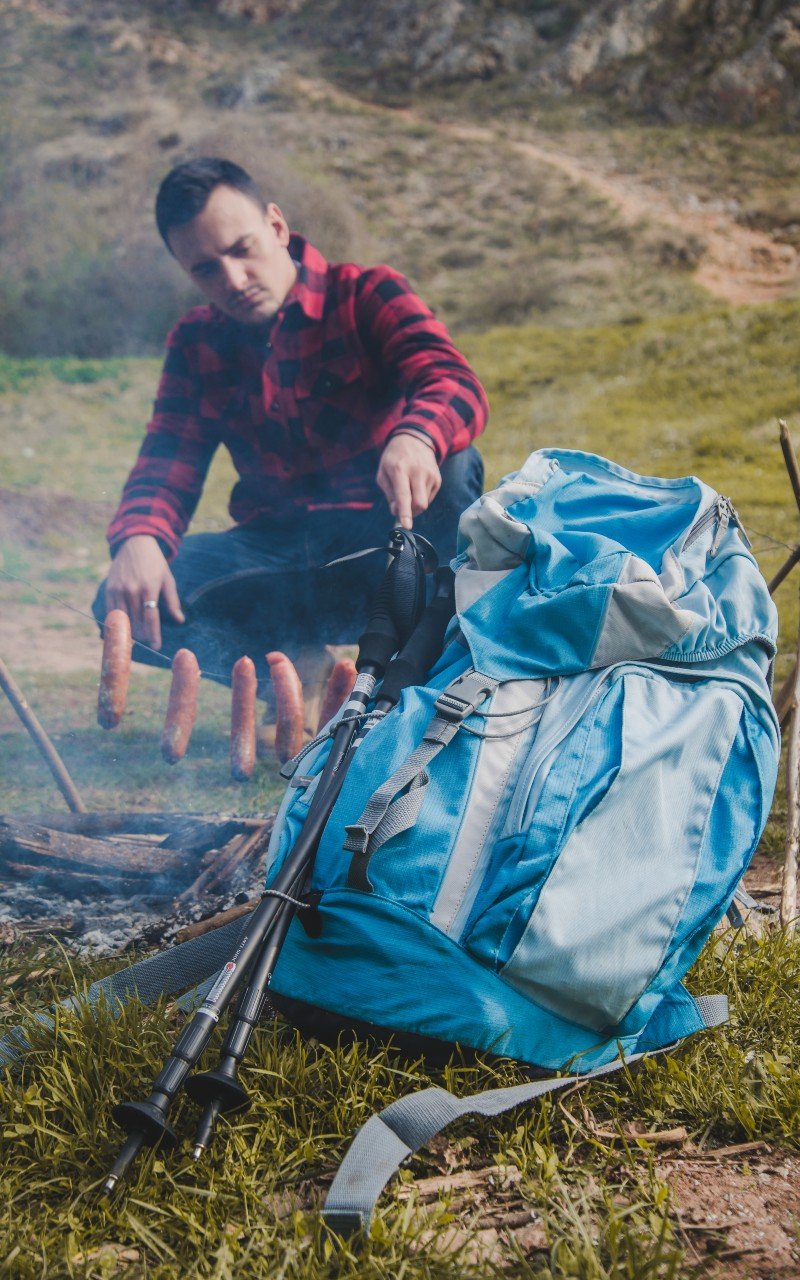
i. 20% = Maximum safe weight (survival mode)
ii. 15% = Comfortable hiking weight (enjoyable)
iii. 10% = Ultralight bliss (you’ll love every mile)
For a 150-pound person, that’s 30 pounds max, 22 pounds preferred, or 15 pounds for pure joy.
ii. Focus Your Money On The Big Three
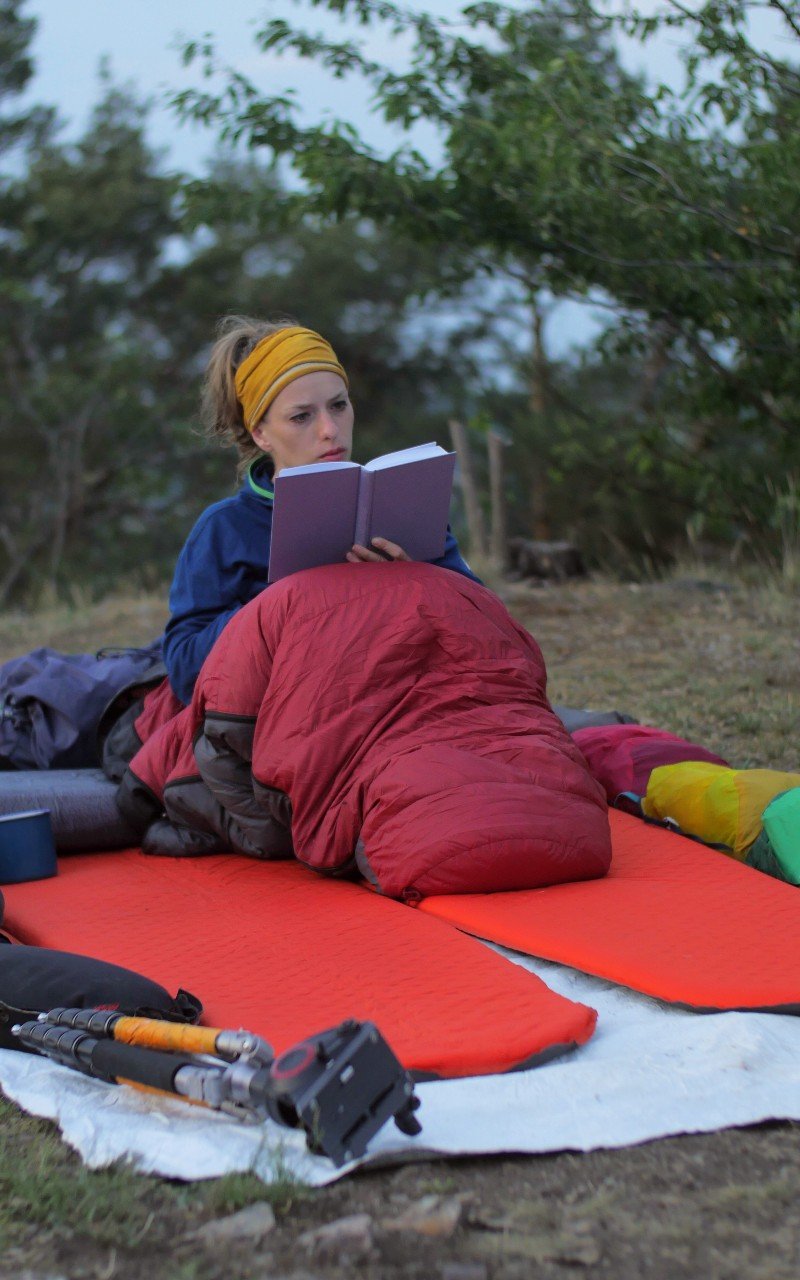
Your pack, tent, and sleeping system make up 70% of your gear weight. Get these right, and everything else falls into place.
Pack (Budget: $150-200)
i. Skip 65-liter monsters that weigh 5 pounds empty
ii. Get a 40-50 liter pack that weighs 2-3 pounds
iii. Flash 45 ($150, 2.5 lbs) beats most $300 heavy packs
Tent (Budget: $200-300)
i. Ditch 4-pound “family” tents for solo trips
ii. Choose 2-pound ultralight models
iii. Big Agnes Copper Spur UL1 ($300, 2.2 lbs) vs cheap 4-pound tents
Sleeping System (Budget: $200-250)
i. Combine lightweight sleeping bag + pad
ii. Down beats synthetic for weight
iii. REI Magma 15 ($179, 2.1 lbs) plus Klymit Static V ($40, 1.3 lbs)
iii. Total Big Three Cost $550-750 Total Weight: 5-7 Pounds
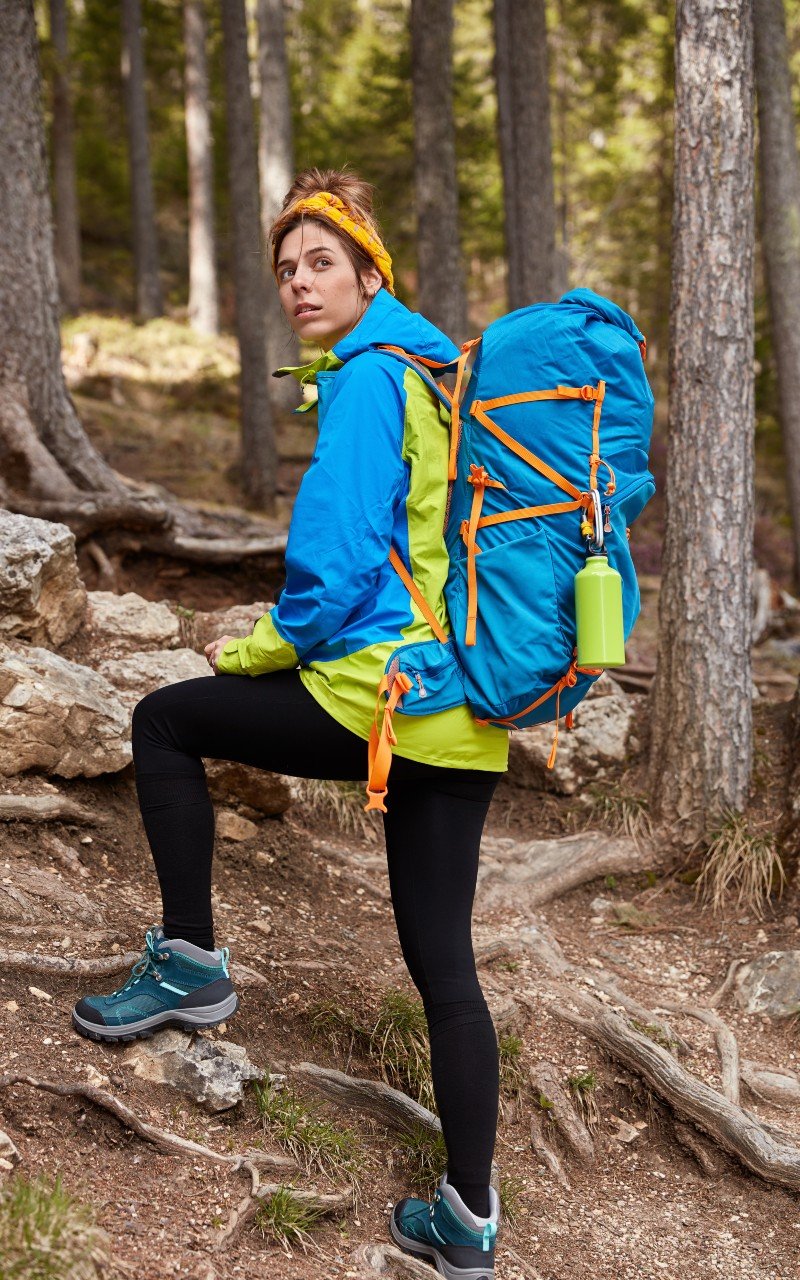
Compare this to heavy gear: $500 spent, 10-12 pounds carried. You save weight and often spend the same money. Gear priorities for beginners:
Spend more on lightweight pack (you carry it all day). Good sleeping pad (bad sleep ruins trips). Quality rain jacket (being wet is miserable)
Save money on, fancy stoves (basic ones work fine). Multiple clothing options (wear the same shirt twice). Gadgets and extras (leave them home)
iv. Essential Vs Non-Essential For First Trips
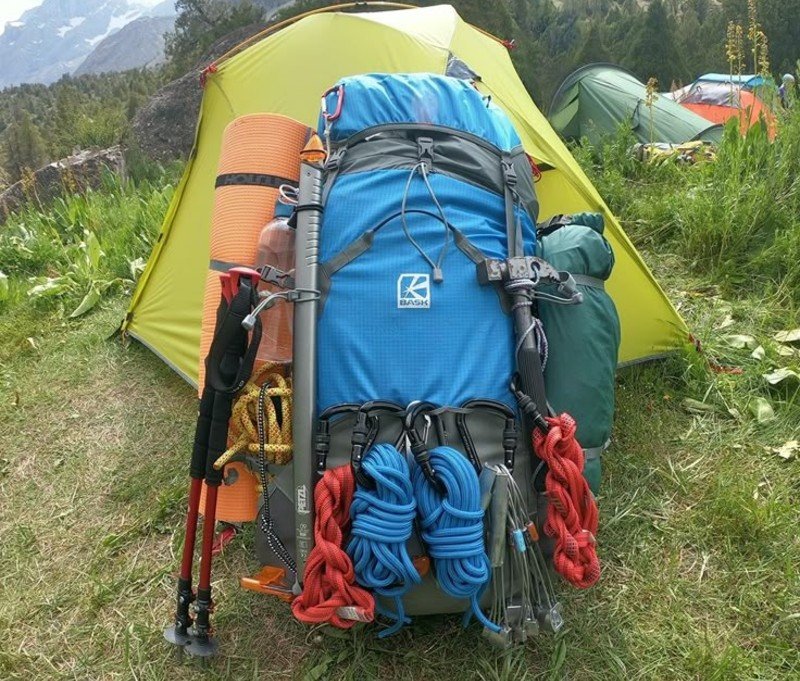
Must bring (affects safety):
i. Shelter, sleep system, rain protection
ii. First aid kit, map, headlamp
iii. Enough food and water
Skip on first trip:
i. Camp chairs (sit on the ground)
ii. Multiple pairs of shoes (wear one good pair)
iii. “Emergency” duplicate gear
iv. Comfort items over 4 ounces
Smart Gear Choices That Save Money and Weight
Every piece of gear you choose is a trade-off between weight, cost, and comfort. Make the right trades, and you’ll hike happy. Make the wrong ones, and you’ll suffer.
i. Tents: Poles Vs Freestanding
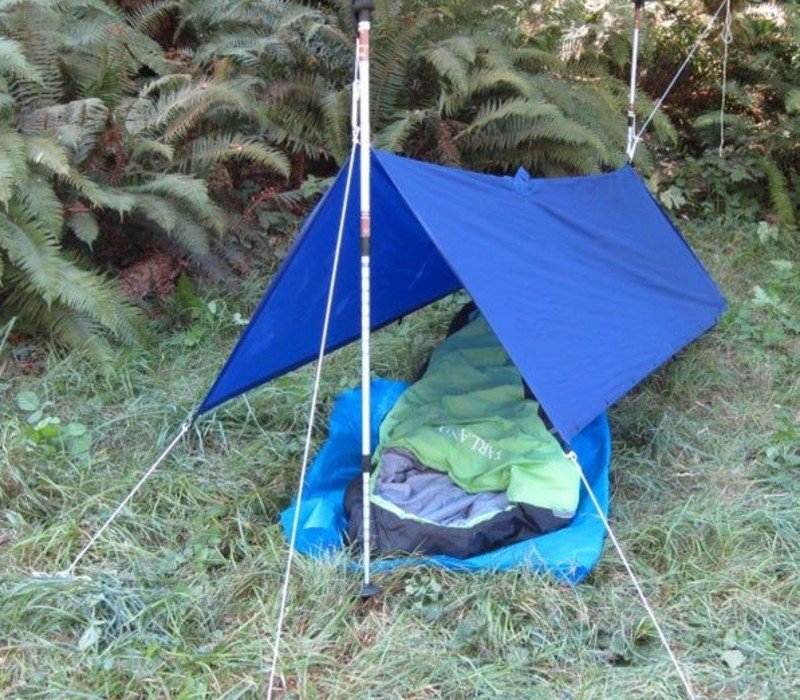
Traditional tents use heavy aluminum poles and weigh 4-6 pounds. Trekking pole tents use your hiking poles as tent poles. This simple switch saves 1-2 pounds and $100.
i. Heavy traditional tent: $200, 4.5 pounds
ii. Trekking pole tent: $150, 2.5 pounds
iii. Savings: $50 and 2 pounds
The trade-off? You need trekking poles, and setup takes practice. For most beginners, it’s worth learning.
ii. Sleeping: Bags vs Quilts
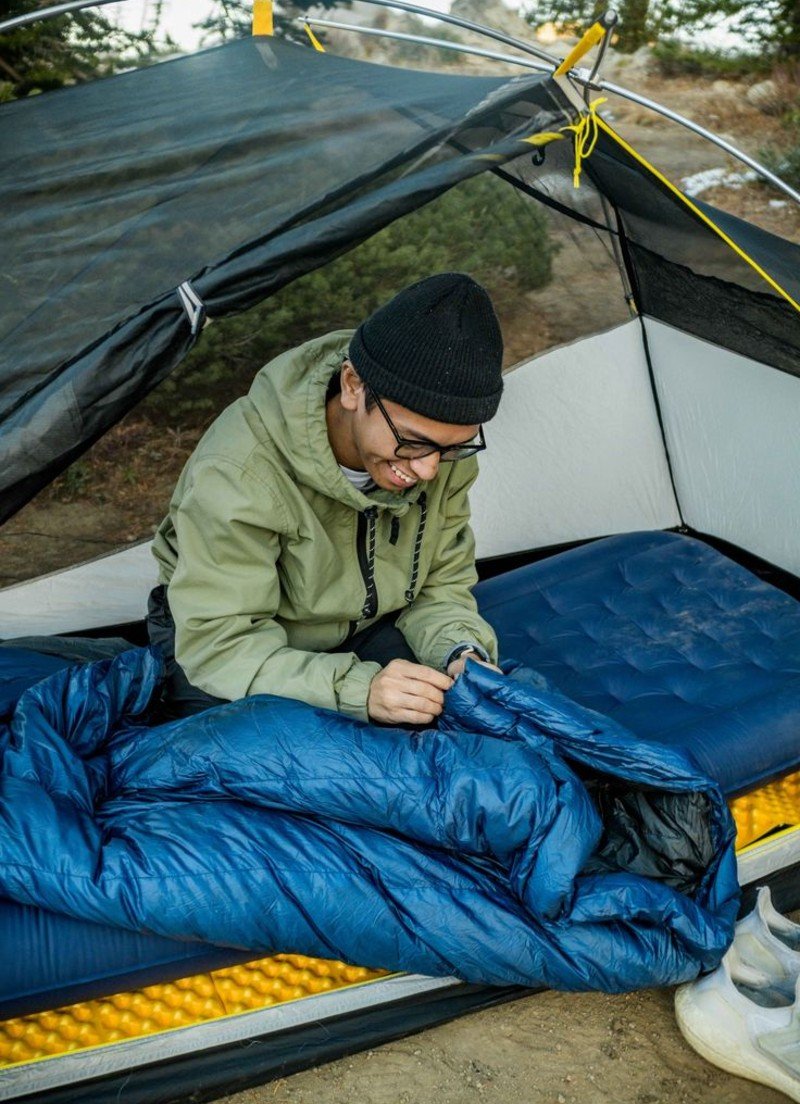
Sleeping bags zip up completely but carry extra weight in zippers and hood material you don’t need. Quilts cover just your top and sides, cutting 8-12 ounces.
i. Traditional bag: $150, 3 pounds
ii. Down quilt: $200, 2 pounds
iii. Trade-off: $50 more, 1 pound less
Beginners often prefer bags because they feel more secure. Either choice works if you buy the right weight rating.
Sleeping pads matter more than sleeping bags. A bad pad makes you cold and sore. Good pads weigh 1-2 pounds and cost $40-100.
Foam pad (Z-Lite): $50, 14 oz, never breaks. Inflatable pad (NeoAir): $150, 12 oz, more comfortable. Both beat heavy “camping” pads that weigh 3+ pounds
iii. Packs: Frame vs Frameless
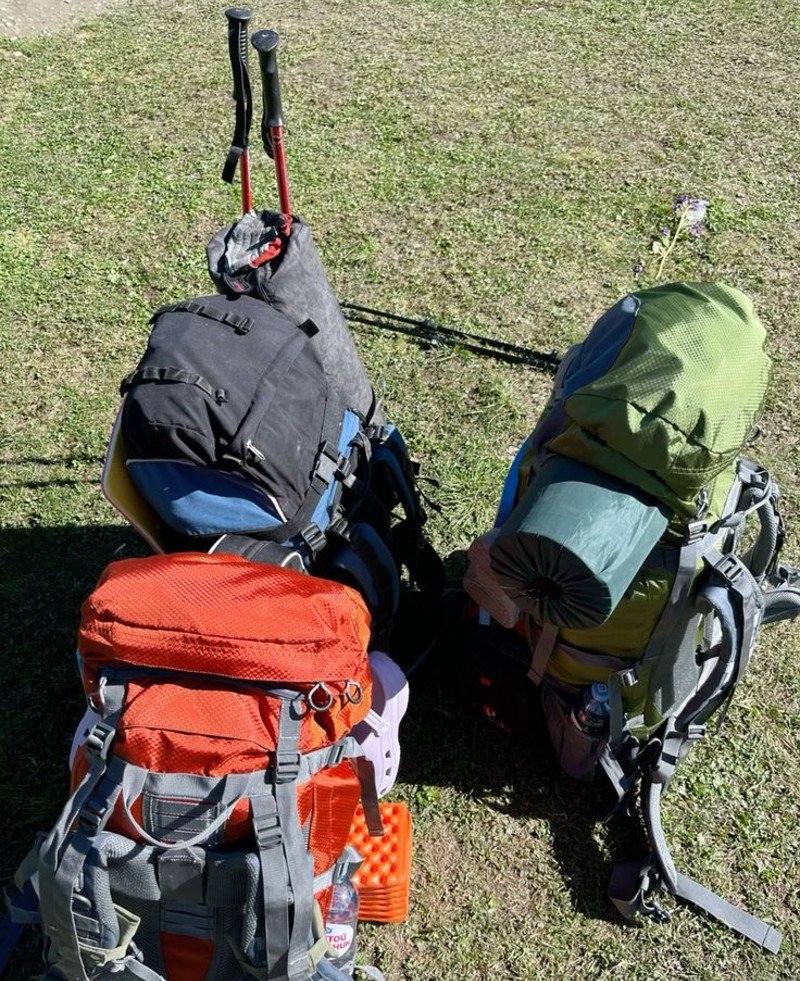
Heavy packs use aluminum frames and thick padding. Frameless packs rely on your gear for structure and weigh half as much.
i. Framed pack: $200, 4 pounds
ii. Frameless pack: $150, 2 pounds
Beginners should start with lightweight framed packs. Once your base weight drops under 20 pounds, consider frameless options.
iv. Kitchen: Multi-use Beats Multiple Items
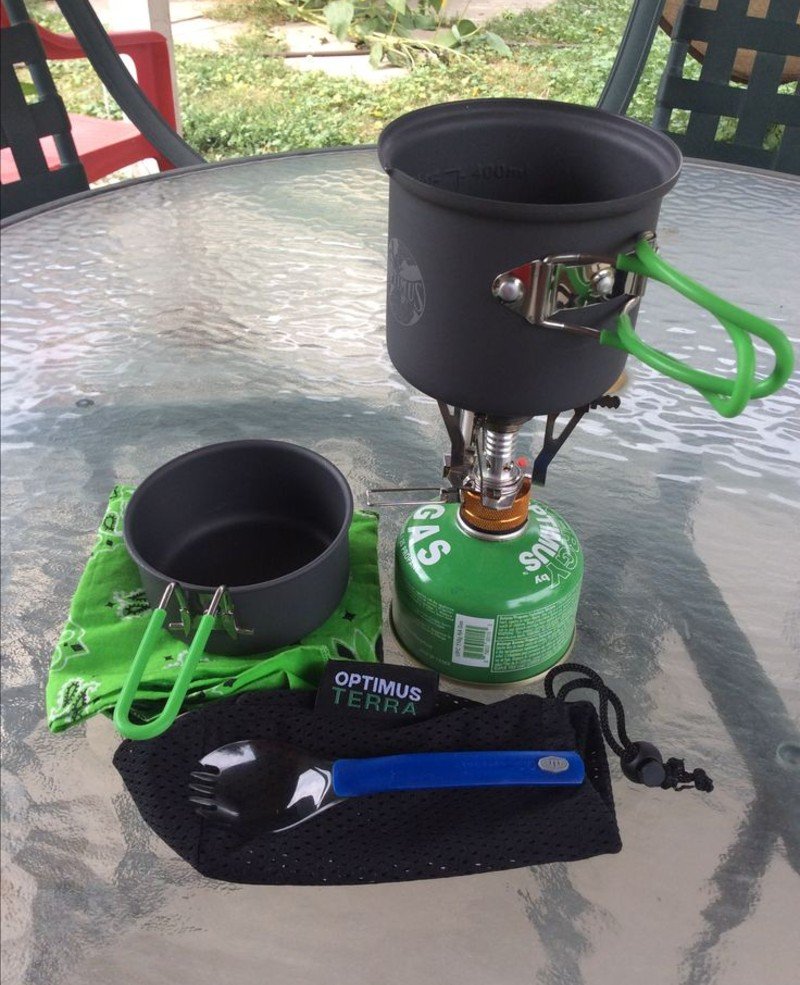
Instead of buying separate items, choose gear that does multiple jobs.
i. Titanium spork: $15 (spoon, fork, and knife)
ii. Lightweight pot with lid: $40 (cook, eat, store)
iii. Alcohol stove: $15 (lighter than gas, cheaper fuel)
Skip heavy “camping kitchen” sets that weigh 2-3 pounds. A simple setup weighs 8 ounces.
v. Clothing: Less is More
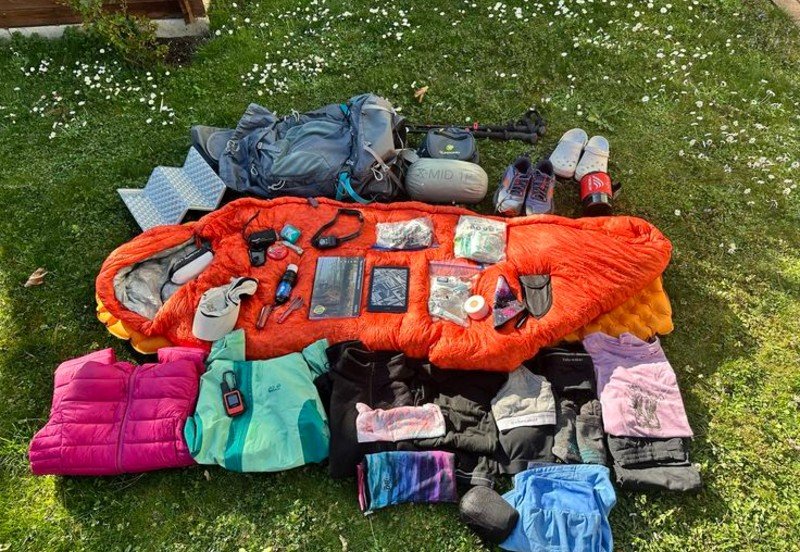
Bring one good outfit, not multiple changes. You’ll smell anyway, and extra clothes add weight fast.
Merino wool shirt: $80, 5 oz, doesn’t stink. Synthetic hiking pants: $60, 8 oz, dry fast. Down jacket: $150, 12 oz, warm when stopped.
The best budget backpacking gear isn’t the cheapest gear. It’s lightweight equipment that costs a bit more upfront but works better and lasts longer.
Focus on weight per dollar, not just low price. A $200 tent that weighs 2 pounds beats a $100 tent that weighs 5 pounds. Your back will thank you for the extra $100.
The Beginner’s Pack Weight Calculator
Calculate your target pack weight in three easy steps. This prevents the guesswork that leads to overloaded packs and ruined trips.
i. Know The Difference Between Base Weight And Total Weight
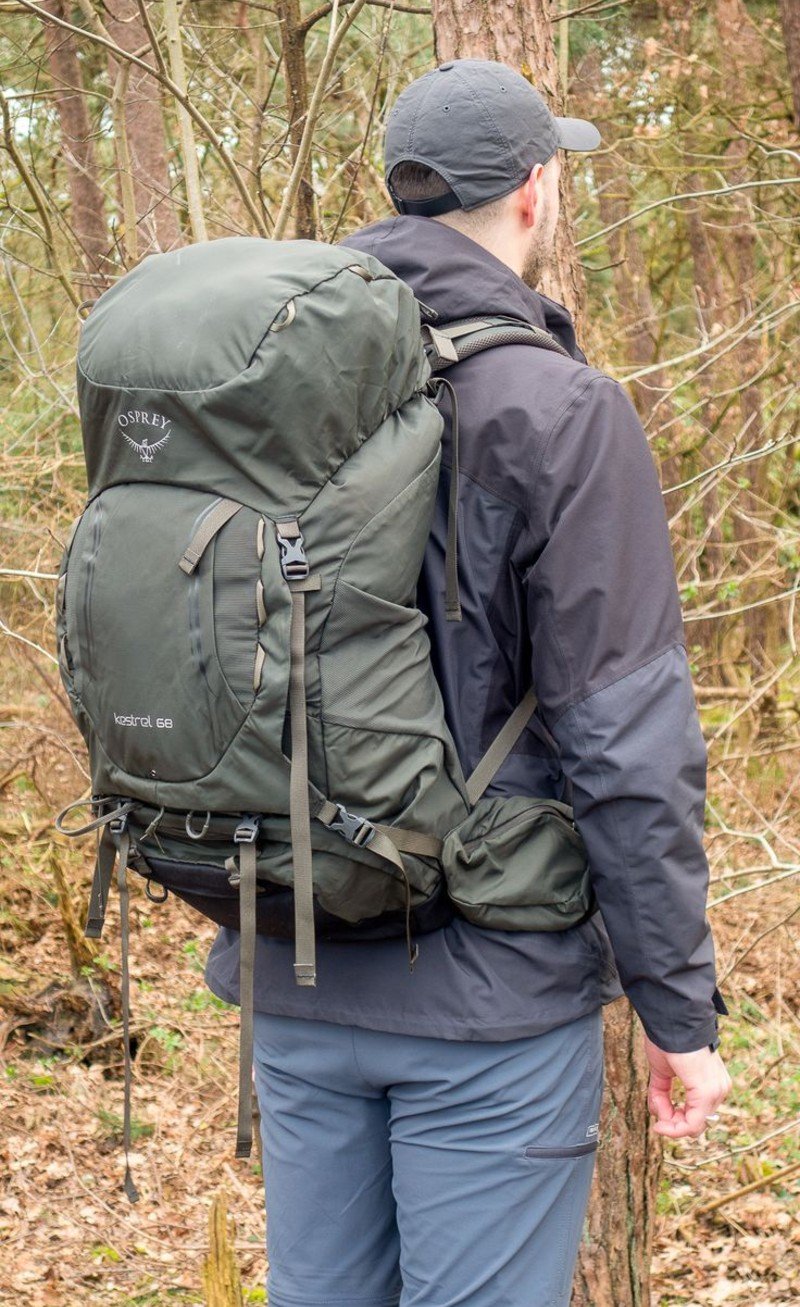
i. Base weight = gear only (pack, tent, sleeping bag, clothes)
ii. Total weight = base weight + food + water + fuel
Your base weight stays mostly the same. Food and water change based on trip length.
ii. Calculate Your Limits

i. Maximum total weight = Your body weight × 0.20
ii. Comfortable total weight = Your body weight × 0.15
iii. Easy hiking weight = Your body weight × 0.10
Sample calculations:
i. 120 lb person: 24 lb max, 18 lb comfortable, 12 lb easy
ii. 150 lb person: 30 lb max, 22 lb comfortable, 15 lb easy
iii. 180 lb person: 36 lb max, 27 lb comfortable, 18 lb easy
iii. Add Food And Water To Your Base Weight
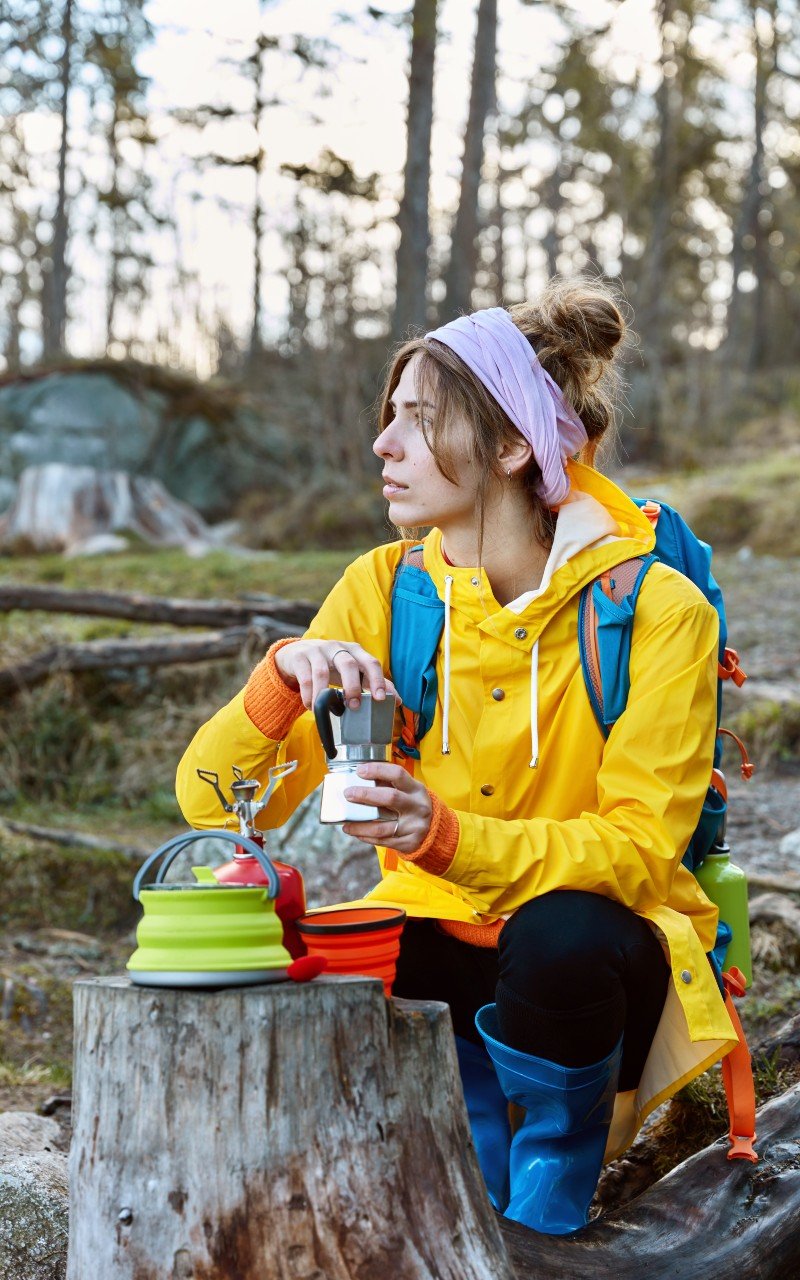
i. Food: 2 pounds per day
ii. Water: 2 pounds per liter (carry what you need between sources)
Weekend trip example (150 lb hiker):
Target base weight: 15 pounds. Food for 2 days: 4 pounds. Water: 4 pounds (2 liters). Total: 23 pounds (comfortable range)
Seasonal adjustments matter. Summer: Standard calculations work. Fall/spring: Add 2-3 pounds for extra layers. Winter: Add 5-10 pounds for cold weather gea
iv. Red Flags Your Pack Is Too Heavy
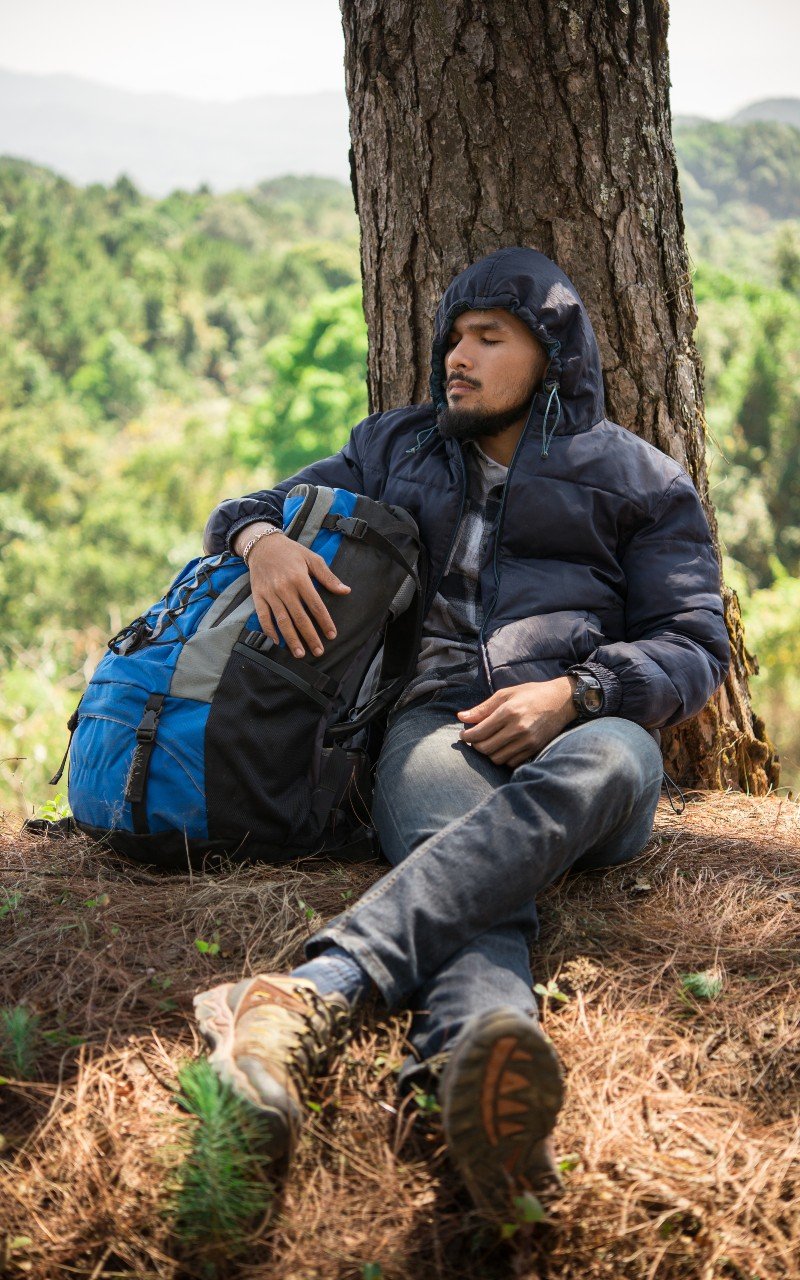
i. You can’t lift it over your head easily
ii. Putting it on requires help or sitting down
iii. You’re breathing hard just from the weight
iv. Your shoulders go numb in the first mile
v. You’re hiking slower than 2 mph on flat ground
Wear your loaded pack around your house for 5 minutes. If it feels uncomfortable just standing around, it will be torture on the trail.
Most beginners pack 40-50 pounds and wonder why hiking hurts. Use these numbers, and hiking becomes fun instead of punishment.
Real Success Stories: Light Pack, Big Adventure
Meet Tom, who almost made the $500 mistake but caught himself in time. His story shows how the right approach creates totally different experiences.
i. Tom’s Original Plan
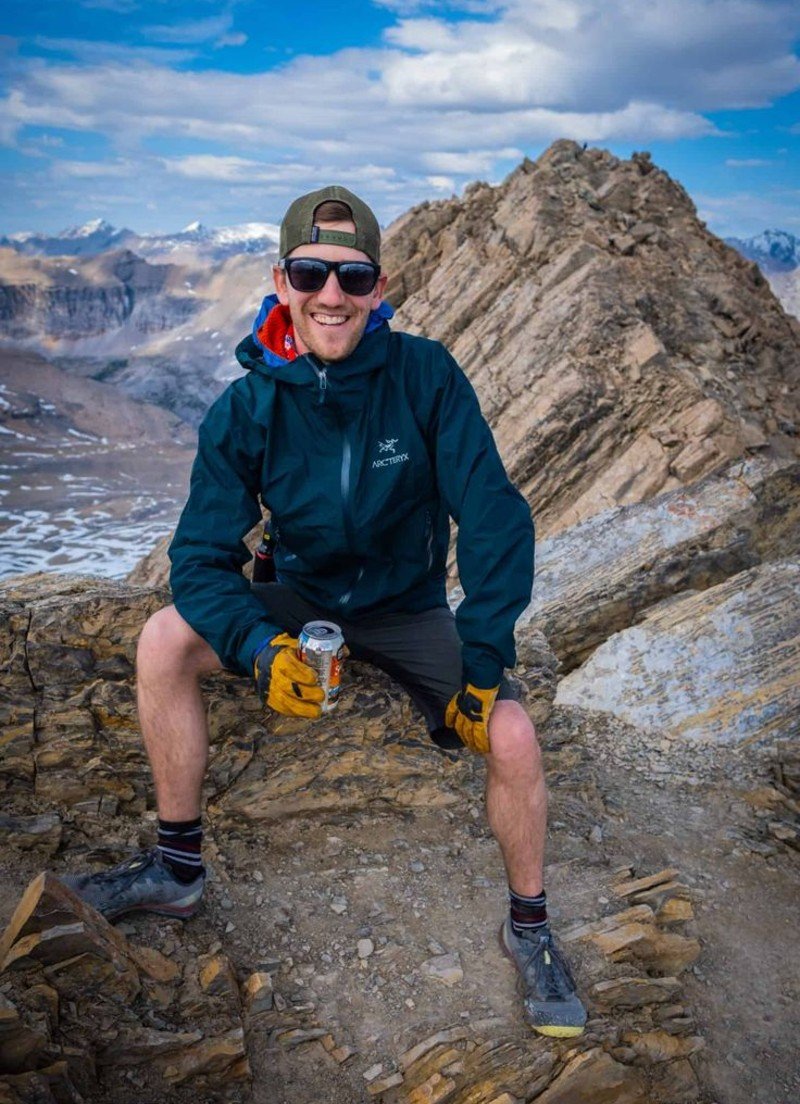
He walked into REI ready to buy a “complete backpacking package” for $650. The setup included a 65-liter pack, 4-pound tent, and sleeping bag rated to -10°F for summer hiking. Total weight of original setup: 47 pounds loaded. Then Tom read about pack weight online and changed everything.
Tom’s smart setup:
i. Osprey Exos 48 pack: $200 (2.4 lbs)
ii. REI Half Dome SL tent: $220 (3 lbs)
iii. Kelty Cosmic 20 sleeping bag: $120 (2.8 lbs)
iv. Basic cooking gear: $80 (1.2 lbs)
New total weight: 26 pounds loaded. Savings: $230.
The results were night and day. Tom’s first trip was a 15-mile loop in the Smokies. With his light pack, he finished strong and wanted to keep hiking. He’s now completed over 200 miles of backpacking and calls it his favorite hobby.
Compare that to his friend Jake, who bought the heavy setup. Jake’s 47-pound pack turned the same 15-mile loop into a survival march. He developed knee pain on day one and cut the trip short. Jake hasn’t been backpacking since.
Rosey,s transformation story is even better. She started with a 52-pound pack and hated her first trip. After learning about pack weight, she replaced her Big Three gear items.
Before: 52 pounds total, 18-pound base weight
After: 28 pounds total, 12-pound base weight
Weight saved: 24 pounds
“It felt like hiking with a completely different body,” Sarah said. “The same trail that destroyed me with heavy gear became enjoyable with light gear.”
The numbers support these stories. Surveys show that hikers with total pack weights under 30 pounds complete their planned trips 85% of the time. Hikers with packs over 40 pounds complete only 60% of planned trips.
Your first backpacking trip should be the start of a lifelong adventure, not a one-time punishment. Light packs make that possible.
FAQs
What exactly is the $500 mistake that ruins backpacking trips?
The mistake is buying heavy “budget” gear that seems like a good deal but makes hiking miserable. New backpackers spend $500+ on heavy packs (5+ lbs), bulky tents (4+ lbs), and oversized sleeping bags, then overpack with extras.
How much should my backpack really weigh for my first trip?
Your total pack weight should never exceed 20% of your body weight. Aim for 15% for comfort. 120 lb person, 24 lb maximum, 18 lb preferred150 lb person, 30 lb maximum, 22 lb preferred180 lb person, 36 lb maximum, 27 lb preferred.
Can I fix a heavy pack setup without buying all new gear?
Yes, but focus on the Big Three first: pack, tent, and sleeping system. These make up 70% of your gear weight. Start by replacing your heaviest item. A 2-pound tent instead of a 5-pound tent saves 3 pounds instantly.
Is lightweight gear worth the extra cost for beginners?
Smart lightweight gear often costs the same or less than heavy “complete” setups. A $200 lightweight tent that weighs 2 pounds beats a $200 heavy tent that weighs 5 pounds. The key is buying the right items, not the most expensive ones.
